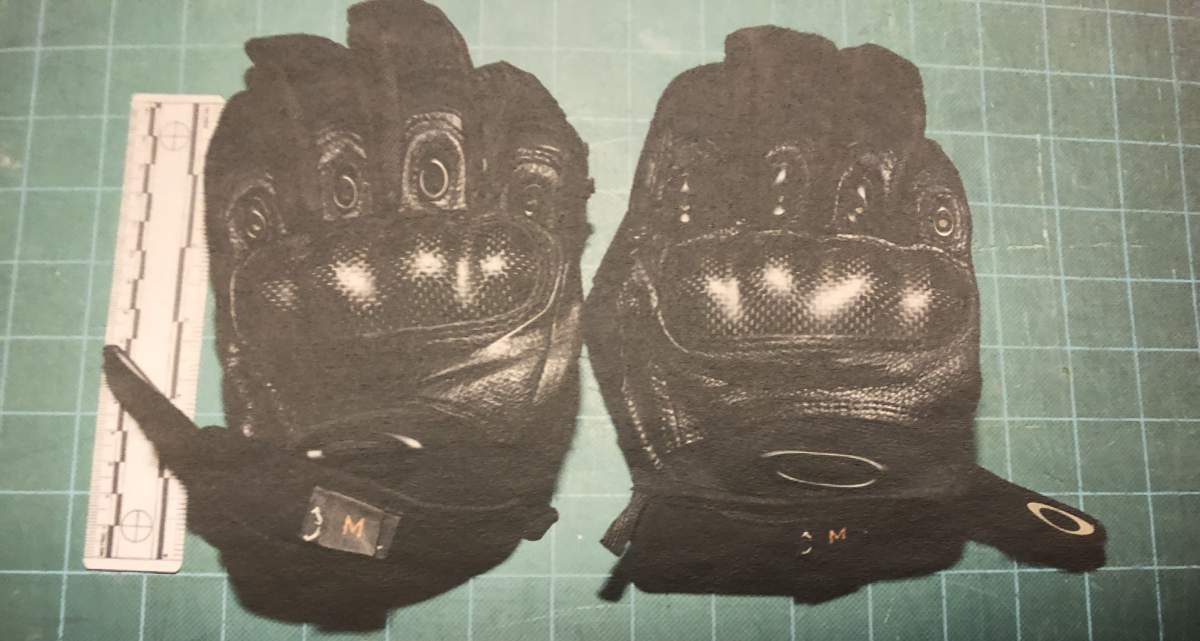The defence representing Const. Daniel Montsion argued Tuesday the accused acted within his bounds as an Ottawa police officer during the fatal arrest of Abdirahman Abdi four years ago.

Montsion’s counsel wrapped up its final oral submissions on Tuesday, halfway through a three-day period reserved to virtually conclude the trial that began in February 2019.
Now, the Crown will begin its final attempt to prove that Montsion acted with “wanton disregard” for the life of 37-year-old Abdi during a violent arrest on July 24, 2016.
Montsion has pleaded not guilty to manslaughter, aggravated assault and assault with a deadly weapon in relation to Abdi’s death. Abdi suffered a cardiac arrest during the altercation and was pronounced dead in hospital the following day, the result of brain hypoxia.
Among the key pieces of evidence pored over in the first half of Tuesday’s hearings were Montsion’s reinforced gloves.
The Crown has argued the knuckle-plated gloves constitute a weapon.
But Solomon Friedman, counsel for Montsion, called the gloves a “distraction.”
He argued the gloves, purchased by Montsion’s supervisor at the Ottawa Police Service (OPS), were a part of the officer’s uniform — not an additional weapon, as a baton used in the encounter might have been.
- RCMP respond to reports of guns at schools in several Alberta communities
- Tumbler Ridge students who survived shooting spree describe terrifying lockdown
- Tumbler Ridge prepares for vigil with Carney, federal leaders set to arrive
- Tumbler Ridge student says he doesn’t know how to return to school following mass shooting
Sales records previously filed as evidence in the case show the OPS purchased 13 pairs of Oakley “S.I. assault gloves” in 2015 and 2016, before the incident took place.
But Friedman described the knuckle coverings on the gloves as “plastic,” more intended to protect the wearer than to cause damage.
“These are not an offensive weapon,” he argued.
Crown counsel Phil Perlmutter countered Friedman’s interpretation, and even asked Justice Robert Kelly, the judge presiding in the case, to handle the gloves when he gets a moment and use them to strike a hard surface to get a sense of how forceful the coverings can be.

Get daily National news
He said the court didn’t need an “expert opinion” to determine what would happen if the gloves’ plating came into contact with a human face.
“They were used as weapons,” Perlmutter said, whether they were intended to be used that way or not.
Friedman’s partner in the case, Michael Edelson, also called into question the reliability of Montsion’s partner in the arrest, Const. Dave Weir, as a witness. Weir was not charged in the incident following an Ontario Special Investigations Unit (SIU) probe.
Weir has said previously in the trial that he felt his testimony was “being used against” Montsion, who he feels saved his life during the altercation with Abdi.
Edelson argued that Weir’s errors in recalling the specifics of the arrest, as compared to CCTV footage of the scene, make his account of the incident unreliable. He highlighted discrepancies in which Weir said he didn’t kick Abdi when video shows he did, and in Weir’s statement that he and Montsion grounded Abdi together when surveillance footage indicates Weir did so alone.

He continued on, noting that if Weir’s memory was inaccurate in these instances, he might’ve also been confused in recalling the force and speed at which Abdi was taken down to the ground — another pivotal question in the case.
The Crown and defence have offered different theories about the cause of “extensive” facial injuries Abdi sustained during the struggle. At the trial’s outset, the Crown said it intends to prove that facial injuries caused by Montsion’s “unjustified punches” to Abdi’s face were one of several factors that brought about the man’s death.
Weir has said previously that he believes Abdi was grounded slowly — a point that would go against the defence’s arguments that Abdi could have sustained the facial injuries during a rapid takedown.
Ultimately, Edelson argued that Montsion’s use of force, which included “distraction blows” to Abdi’s face, was justified given the circumstances.
Audio recordings played for the court on Monday indicated Montsion had been told Abdi had attacked and groped customers at a nearby Bridgehead Coffee shop before Weir pursued and pepper-sprayed him to little effect.
Edelson claimed the officer did not intend to cause “grievous bodily harm” to Abdi, but was warranted to use the force he did given the information he had about the situation as he pulled up to Abdi’s Hilda Street apartment building.
Perlmutter argued the opposite, based on another audio recording not played by the defence, in which Weir described Abdi as having “calmed down” before Montsion arrived.
Given that information and his own assessment of the scene, the officer did not have to engage and could have considered de-escalating the situation upon his arrival — a consideration the Crown argues he did not make, instead opting to escalate the altercation.
Meanwhile, the defence claimed Abdi’s life might have been in peril well before Montsion arrived, arguing the stress surrounding the arrest already aggravated the victim’s then-unknown heart condition.
Friedman said that a forensic pathologist found Abdi could have hit a “point of no return” in terms of his health before Montsion even arrived at the scene.
“A point of no return doesn’t mean that death is likely or the person’s unwell, it means that death is inevitable within that period of peril,” Friedman said.
Perlmutter will continue final oral submissions for the Crown Wednesday morning.
The defence will have one final opportunity to rebut the Crown’s arguments on Wednesday afternoon.
— With files from Global News’s Beatrice Britneff and the Canadian Press








Comments
Comments closed.
Due to the sensitive and/or legal subject matter of some of the content on globalnews.ca, we reserve the ability to disable comments from time to time.
Please see our Commenting Policy for more.